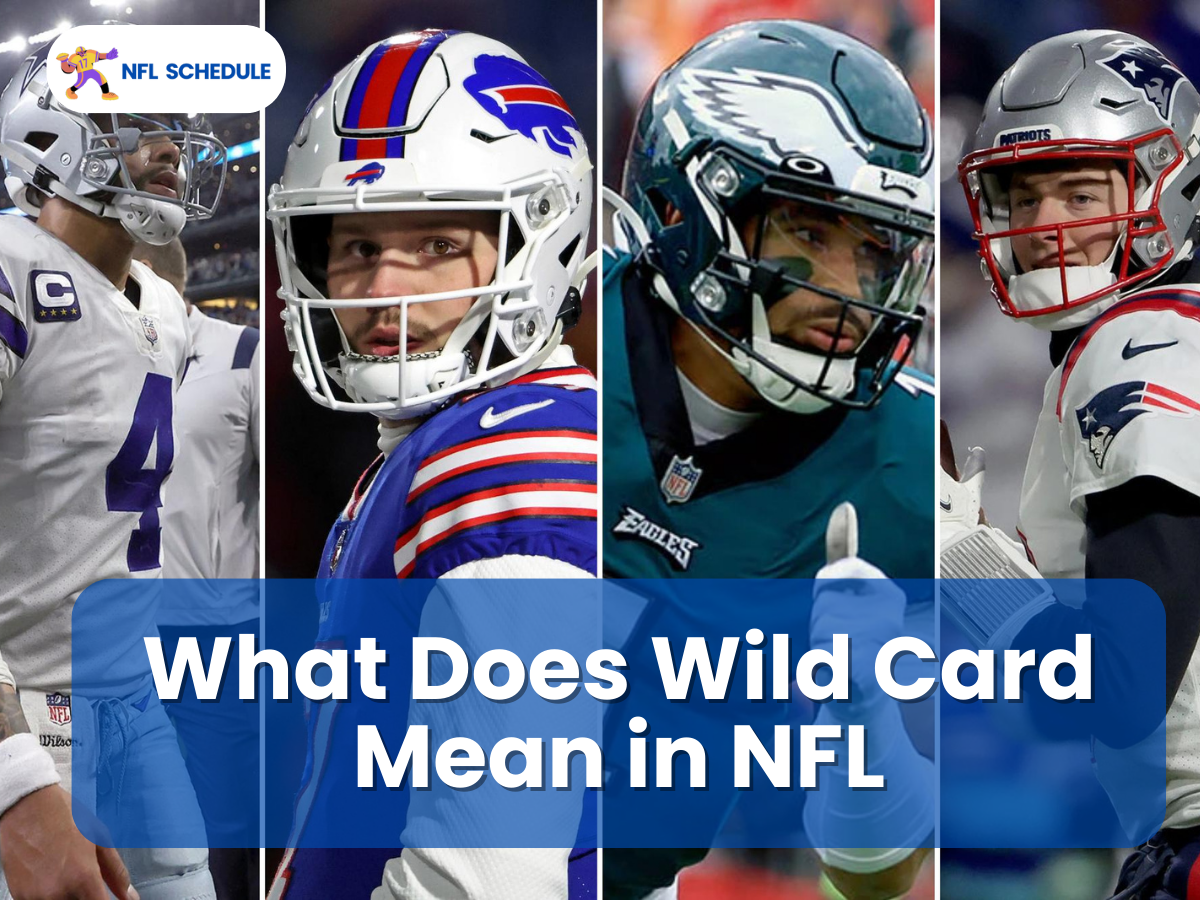The concept of the Wild Card in the NFL has evolved into a pivotal aspect of the league’s playoff structure, offering a blend of excitement, strategy, and opportunity for teams vying for the Super Bowl. Let’s break down the key elements of the Wild Card and its role in the NFL playoffs.
Contents
The Basics of NFL Wild Card
- Wildcard Teams: These are teams that make the NFL playoffs without winning their division. Post-2020, each conference (AFC and NFC) sends three Wild Card teams along with four division champions to the postseason.
- Playoff Structure: With the inclusion of a third Wild Card team, there are now seven playoff teams from each conference. This change, introduced in the 2020 season, increased the total playoff teams from 12 to 14.
- First-Round Bye: Only the team with the best record in each conference gets a bye during the Wild Card Round. This is a shift from the previous format where the top two teams received byes.
- Matchups: Wild Card teams face off against division winners in the first playoff round, often playing away games which adds to the challenge.
Historical Context and Evolution
- Origins: The Wild Card concept in the NFL dates back to 1970, initially introduced to balance the playoff structure. Over the years, it has evolved, with significant changes in 2012 and 2020, increasing the number of Wild Card teams.
- Significance: Wild Card teams have made remarkable impacts in NFL history. Notably, six Wild Card teams have won the Super Bowl, showcasing that these teams can indeed go the distance.
Read: How Does NFL Playoff Seeding Work? The Complete Detail
The Strategic Implications
- Challenges for Wild Card Teams: Typically, Wild Card teams play all their playoff games on the road. They must prepare for potentially multiple opponents and often face teams that have had a bye week and are thus more rested.
- Success Factors: Key to a Wild Card team’s success are factors like getting on a late-season hot streak, having an elite quarterback/coach duo, and exploiting the potential rustiness of higher-seeded teams.
Current Landscape
- Recent Changes: The addition of a third Wild Card team per conference has made the playoff races even more exciting and unpredictable.
- Impact on Teams and Fans: More teams in the playoffs mean more games and heightened excitement, keeping fans engaged throughout the season.
Impact and Success Stories
- Historical Impact: Since its introduction, the Wild Card has had a significant impact on the NFL playoffs. Not only does it allow for more teams to compete, but it has also led to some of the most memorable moments in NFL history.
- Super Bowl Champions: A notable aspect of the Wild Card is its contribution to Super Bowl history. Six teams that entered the playoffs as Wild Cards have gone on to win the Super Bowl. This includes teams like the 2005 Steelers and the 2010 Packers, demonstrating that Wild Card teams can indeed emerge as champions.
Read: Do NFL Waterboys Get Super Bowl Rings? All You Need to Know
Recent Trends and Statistics
- Performance Stats: Analyzing recent seasons, Wild Card teams win their first playoff game about 50% of the time. This statistic underscores the competitiveness of these matchups.
- Playoff Dynamics: The addition of the third Wild Card spot has introduced new dynamics into the playoff race, making the early rounds of the playoffs more volatile and unpredictable.
Key Strategies for Wild Card Teams
- Road Challenges: Wild Card teams often face the challenge of playing all their playoff games on the road, which requires strategic adjustments and mental toughness.
- Preparation and Adaptability: Preparing for multiple potential opponents and adapting to different playing environments are crucial for Wild Card teams to succeed.
- Late-Season Momentum: Building momentum in the late season and entering the playoffs on a hot streak can be a game-changer for these teams.
Examples of Wild Card Success
- Remarkable Runs: The NFL history is replete with Wild Card teams making deep playoff runs. For instance, the 2007 Giants, a Wild Card team, famously defeated the undefeated Patriots in the Super Bowl.
- Resilience and Surprise: These teams often embody the spirit of resilience and the capacity to deliver surprises, often overturning expectations and creating some of the most thrilling moments in the playoffs.
Final Thoughts
The Wild Card meaning in NFL encompasses not just a playoff spot but a symbol of opportunity, resilience, and the unpredictability of football. It adds a layer of excitement to the postseason, offering teams a chance to defy the odds and create unforgettable moments in sports history.







